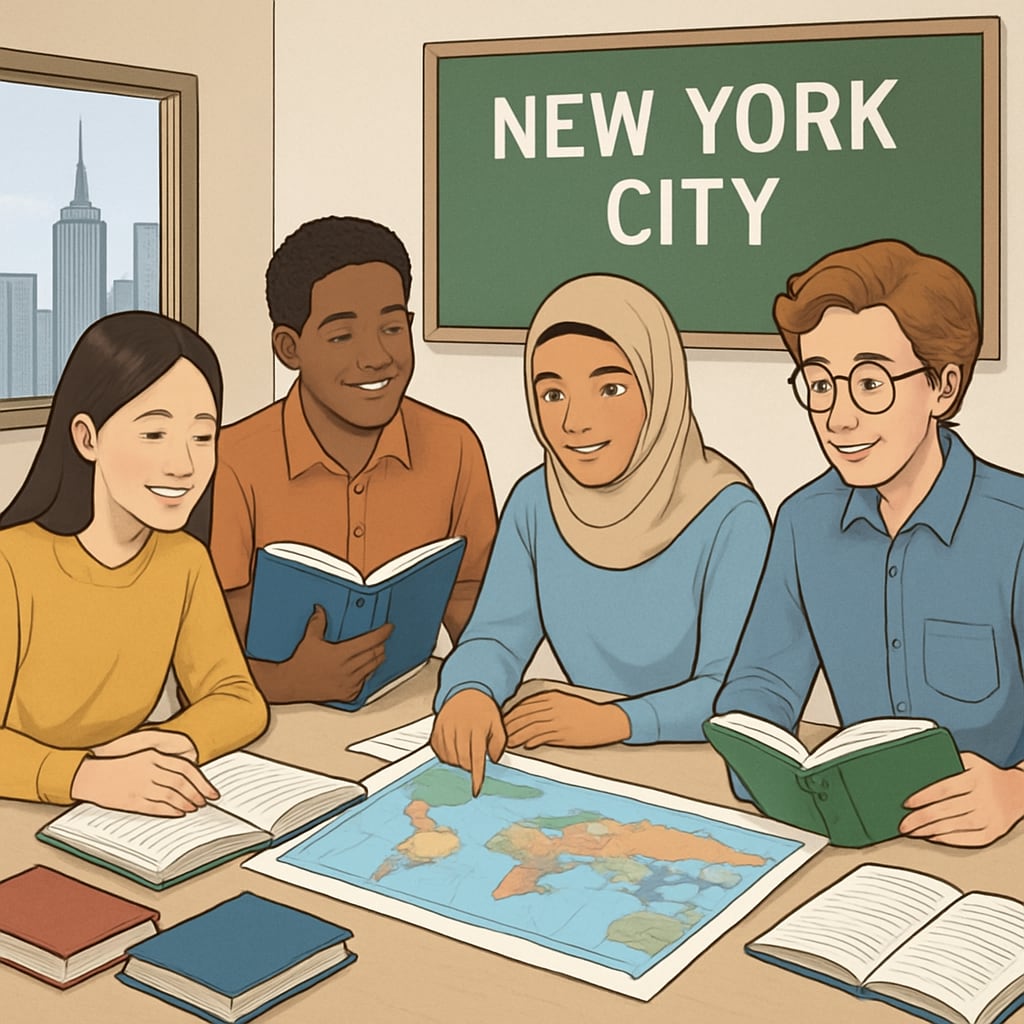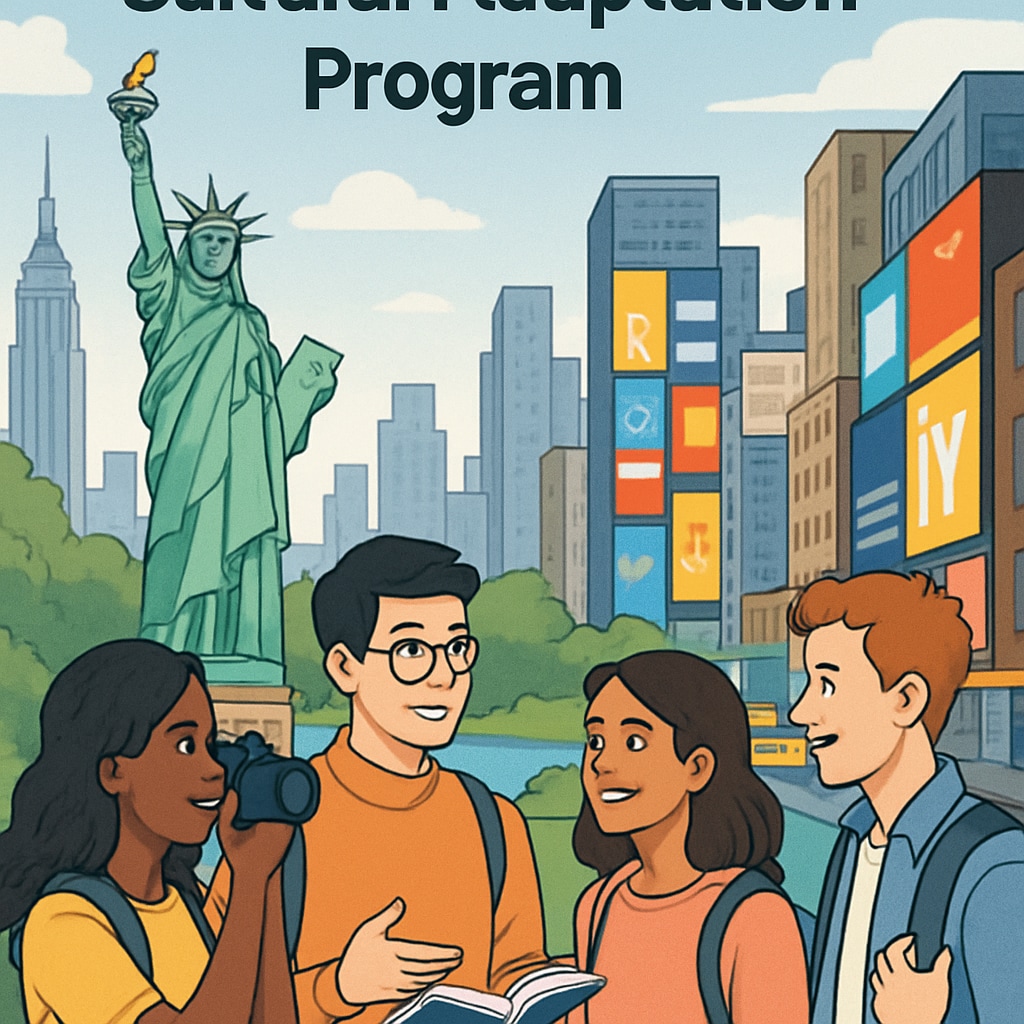For international students, navigating the U.S. education system can be both exciting and challenging. The need for adult education, cultural adaptation, and foundational knowledge is crucial to bridging the gap between their home culture and the American way of life. In New York, a city celebrated for its diversity and educational opportunities, there are numerous resources available to help international students integrate into the local culture while also achieving their academic and professional goals.
Understanding the Need for Cultural Adaptation
Adapting to a new culture involves more than just learning a language. It requires understanding social norms, communication styles, and the values that shape everyday interactions. For international students, this process can feel overwhelming at times, especially when combined with academic pressures. However, cultural adaptation is a skill that can be developed through intentional learning and practical experiences.
Adult education programs that focus on cultural awareness and foundational knowledge about American society can significantly ease this transition. These programs often include workshops on workplace etiquette, social norms, and historical contexts, providing students with the tools they need to succeed both academically and socially.

Top Educational Resources for International Students in New York
New York City offers a wide range of resources tailored to the unique needs of international students. Here are some of the top options:
- Community Colleges: Many community colleges in New York provide adult education courses that include English as a Second Language (ESL) programs and cultural adaptation workshops. For example, Borough of Manhattan Community College (BMCC) offers comprehensive programs designed for non-native speakers.
- Public Libraries: The New York Public Library (NYPL) hosts free classes and events on topics like American history, English conversation practice, and job readiness. Visit their website at NYPL.org for more details.
- Cultural Exchange Programs: Organizations like the International Center of New York provide cultural exchange programs that pair international students with local mentors for one-on-one cultural learning experiences.
- Online Platforms: Websites like Coursera and edX offer courses on U.S. culture and history, allowing students to learn at their own pace.

Tips for Effective Cultural Integration
While formal education plays a significant role, cultural adaptation also requires proactive engagement with the local community. Here are some practical tips:
- Attend Local Events: Participate in cultural festivals, workshops, and community activities to gain firsthand experience of American culture.
- Build Relationships: Form connections with both local and international peers. These relationships can offer valuable insights and support.
- Stay Curious: Ask questions, seek clarification, and remain open to new experiences. Curiosity fosters deeper understanding and adaptability.
- Reflect on Experiences: Take time to reflect on cultural differences and how they can enrich your perspective. This mindfulness helps build resilience and empathy.
Ultimately, cultural integration is a journey. By leveraging educational resources and actively engaging with the community, international students can transform challenges into opportunities for growth.
The Role of Foundational Knowledge in Career Success
For international students who plan to build careers in the U.S., understanding foundational knowledge about American workplace culture is critical. This includes learning about professional communication styles, networking etiquette, and workplace diversity. Many adult education programs in New York offer career-focused workshops that cover these essential topics.
For example, the City University of New York (CUNY) offers career readiness programs that help students develop resumes, prepare for interviews, and understand industry-specific expectations. By investing in these resources, international students can enhance their employability and thrive in competitive job markets.
In addition, platforms like LinkedIn Learning provide online courses tailored to professional development needs, making it easier for students to access training that fits their schedules.
As a result, foundational knowledge not only supports academic success but also empowers international students to pursue meaningful careers in their chosen fields.
In conclusion, international students navigating the U.S. education system can greatly benefit from resources that focus on adult education, cultural adaptation, and foundational knowledge. New York City, with its diverse population and wealth of educational opportunities, serves as an ideal place to access these resources. By taking advantage of the programs and tips outlined above, students can confidently bridge cultural gaps and achieve their goals.


